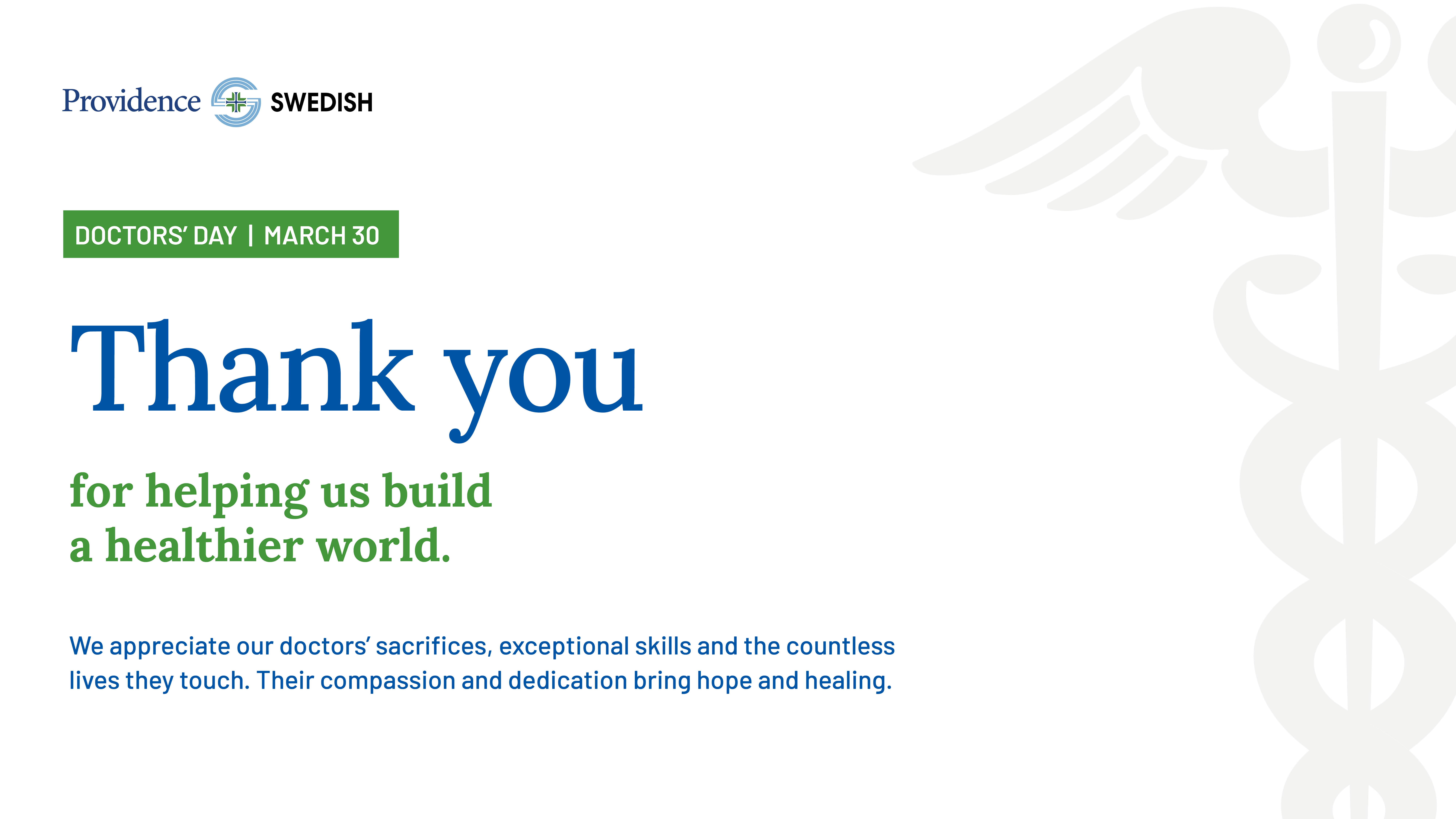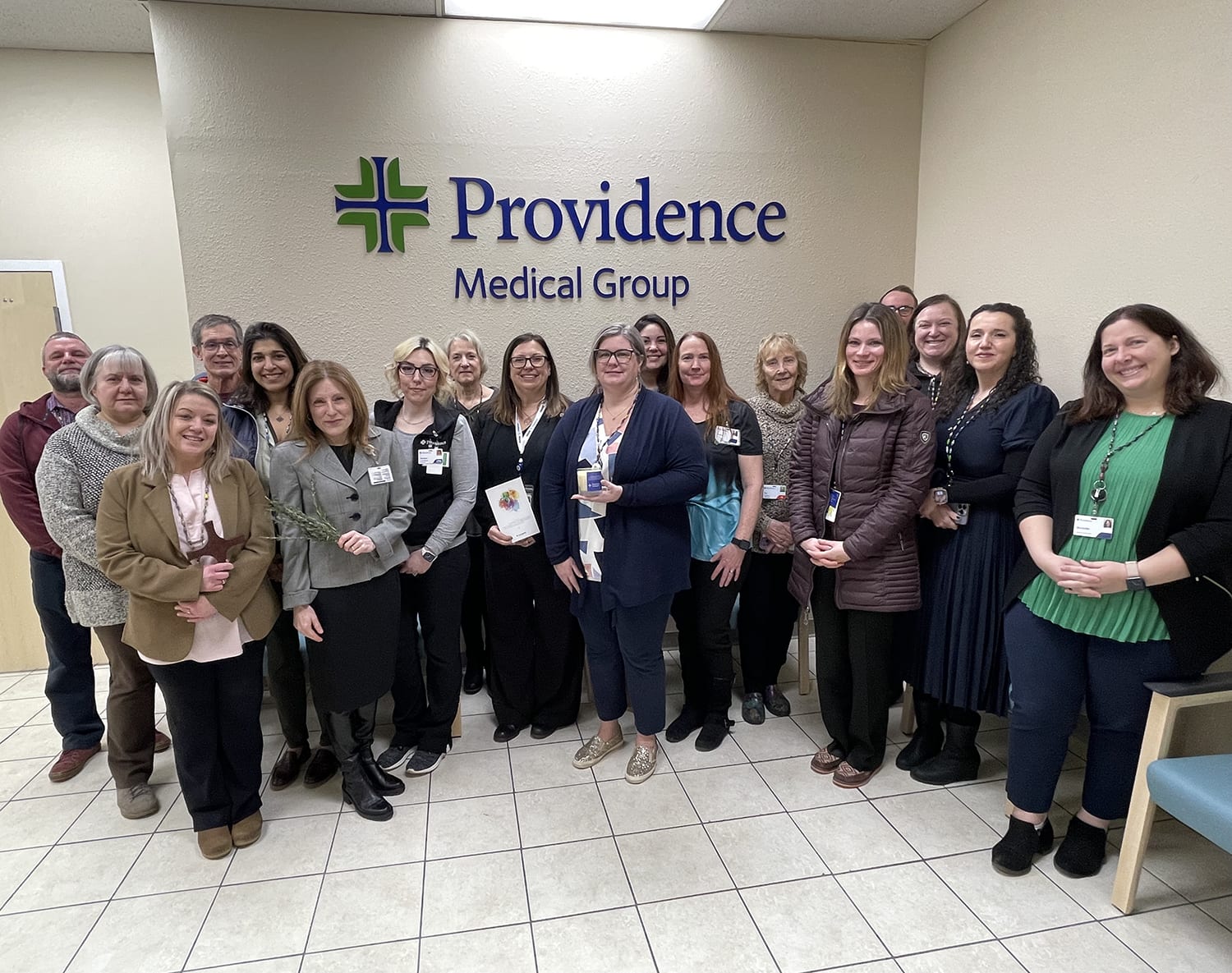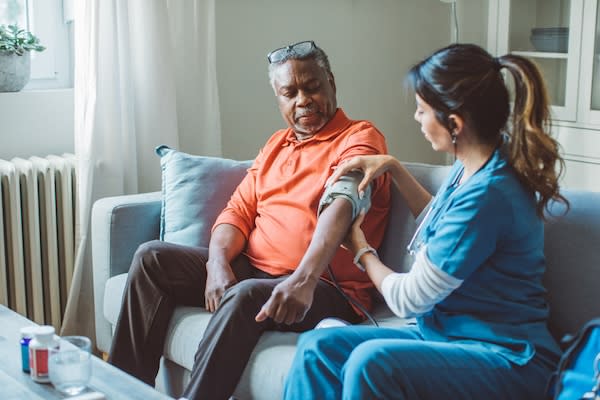Colorectal cancer increases in younger populations, emphasizing importance of screenings
Author: Stacy K. Lewis, M.D., medical oncologist and division director, Medical Oncology/Hematology, and director, Autologous Stem Cell Transplant Program, Providence Cancer Institute
Providence Cancer Institute welcomes Hagen Kennecke, M.D., MHA, FRCPC, as the new medical director of Gastrointestinal Oncology. Dr. Kennecke most recently served as attending physician and medical director at Virginia Mason Cancer Institute in Seattle.
He is an active clinician researcher and serves as chair of the National Cancer Institute Rectal-Anal Cancer Task Force, and chair of the Southwest Oncology Group (SWOG) Recto-Anal Cancer Subcommittee.
Dr. Kennecke joined Providence in March – National Colorectal Cancer Awareness Month – providing a timely opportunity to get his perspective on the changing landscape of screening and treatment for patients with colorectal cancer.
Dr. Stacy Lewis: Dr. Kennecke, colorectal cancer is the third most commonly diagnosed cancer in men and women combined in the U.S., and the second most common cause of death from cancer. Who should get colonoscopies and starting at what age?
Dr. Hagen Kennecke: The American Cancer Society and the U.S. Preventive Services Task Force recently revised their guidelines to begin colorectal cancer screening at age 45. This change was driven by data from the past 20 years showing a significant increase in colorectal cancer diagnoses in patients under age 50. Screening should generally continue until age 75. A strong family history, previous polyps and inflammatory bowel disease are indications to begin screening earlier than age 45. It will take time for all health insurers and self-insured employers to adopt these recommendations, so patients should contact their health insurance provider to learn about their insurance coverage for colorectal screening.
Dr. Lewis: What symptoms should people be aware of, regardless of age?
Dr. Kennecke: Blood in the stool or persistent change in bowel habits should prompt consideration for a colonoscopy. Patients should remember that symptoms alone are not a reliable indication of early-stage colorectal cancer.
Dr. Lewis: It seems people are being diagnosed with colorectal cancer at a younger age – why?
Dr. Kennecke: We don’t know for certain why younger patients are getting diagnosed with colorectal cancer. There is evidence that a Western diet high in processed meat (a WHO Group 1 carcinogen), red meat (a WHO Group 2 carcinogen), as well as a high-fat, low-fiber diet, may be contributing factors. Exercise has been shown to improve outcomes for those diagnosed with colorectal cancer. Family history accounts for only a small proportion of those diagnosed with colorectal cancer, so screening should begin in a timely manner regardless of family history.
Dr. Lewis: What are some of the latest treatments and research for colorectal cancer?
Dr. Kennecke: There are many areas of improvement, and this is very encouraging for patients and their care teams.
We are getting much better at treating early-stage colorectal cancer by using minimally invasive surgeries that require shorter hospital stays. Significant improvements have been made in determining who needs chemotherapy after surgery and how much. At Providence Cancer Institute, we apply the latest technologies to personalize care for our patients with colorectal cancer, including an FDA-approved blood test to detect the presence of circulating tumor DNA. This can help make decisions about whether chemotherapy is needed, and multiple clinical trials are available to follow patients closely.
Dr. Lewis: What treatments are available for patients with advanced colorectal cancer?
Dr. Kennecke: When colorectal cancer has spread to the liver, we work closely with our hepatobiliary surgery team to decide when surgery is recommended. We also are developing a program to deliver chemotherapy directly into the liver. This is called hepatic arterial infusional chemotherapy and is offered in some specialized cancer centers in the United States.
All patients with metastatic colorectal cancer are candidates for a gene panel developed by molecular scientists and pathologists at the Providence Molecular Genomics Lab, located near Providence Portland Medical Center. Genomic sequencing can help providers determine what treatments may be helpful and find new experimental treatment options. For example, RAS gene mutations are found in 50 percent of all colorectal cancers. Clinical trials of immunotherapy for RAS-mutated cancers are available at the Earle A. Chiles Research Institute, a division of Providence Cancer Institute, and may be a treatment option for these patients.
Dr. Lewis: What are some other areas of study at Providence Cancer Institute?
Dr. Kennecke: Rectal cancer is a very active area of clinical research at Providence. We are conducting studies of immunotherapy combined with chemotherapy, radiation and surgery; innovative surgical approaches such as transanal total mesorectal excision; shorter courses of pelvic radiation; and endoscopic surgery to improve bowel function and reduce toxicity.
Preventive measures such as diet and exercise also are critical in preventing colorectal cancer. Providence offers clinical trials to help reduce the incidence of colorectal polyps. These trials, and many others in our clinical research portfolio, will help provide our patients with novel treatment options in the future.
For more information
- To refer a patient, call 503-215-6014.
- Website: ProvidenceOregon.org/colorectalcancer
- Dr. Kennecke’s provider profile: https://www.providence.org/doctors/profile/1862221-hagen-f-kennecke



